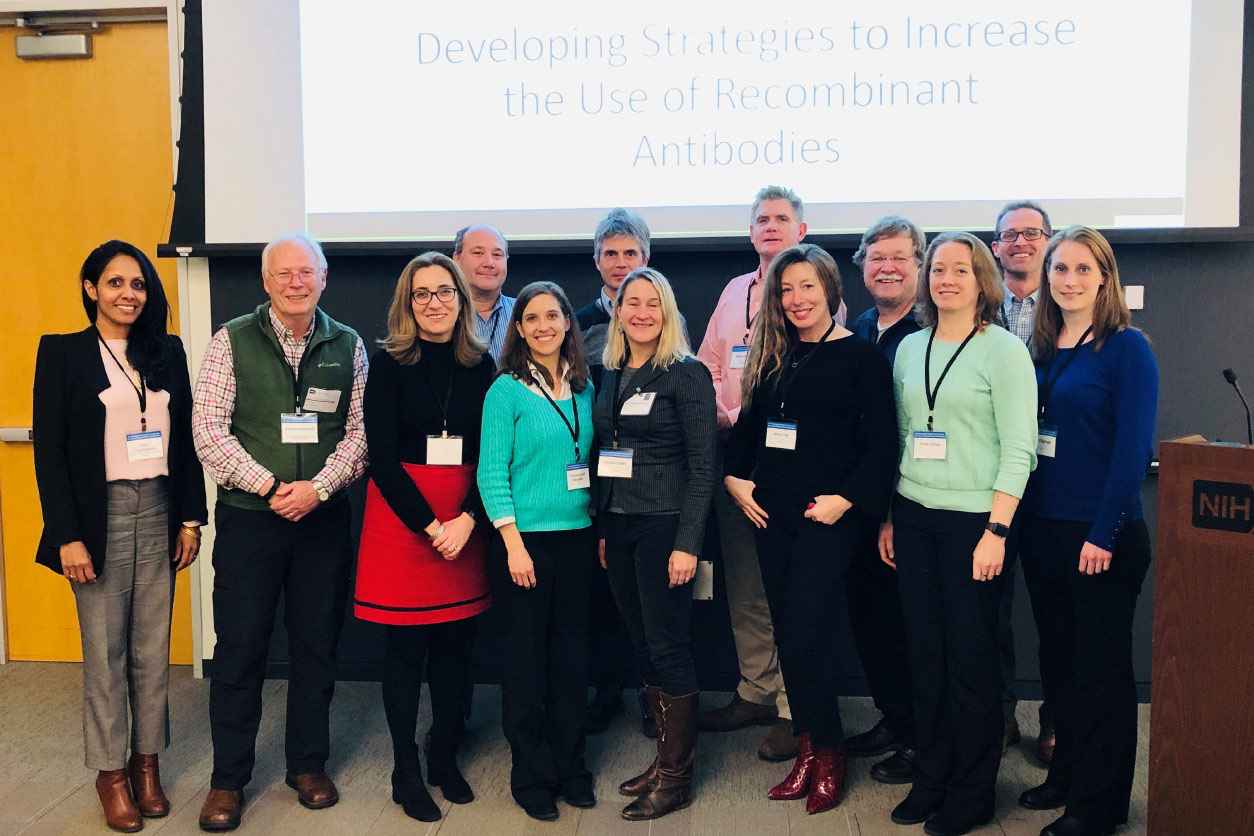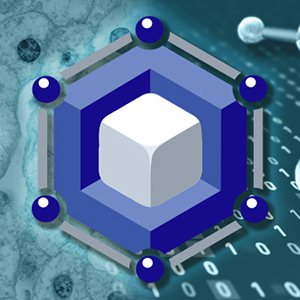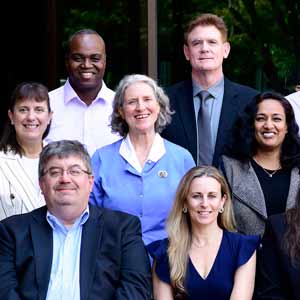Experts from academia, government, and animal welfare groups met Dec. 3 to discuss the use of nonanimal-derived antibodies in research, medicine, and biotechnology. The meeting was held at the National Institutes of Health in Bethesda, Maryland.
Antibodies are blood proteins used to target and affect specific molecules. They have a variety of important applications, including development of therapeutics for conditions such as immune deficiency, multiple sclerosis, and certain cancers.
Most antibodies are derived from laboratory animals, but cell-based production is on the rise. Attendees said efforts should increase to continue that trend.
The National Toxicology Program (NTP) Interagency Center for the Evaluation of Alternative Toxicological Methods (NICEATM) organized the meeting in collaboration with PETA International Science Consortium, Ltd. (PETA-ISC).
Potential to improve research
Participants noted that antibodies from animals are difficult to characterize and can introduce variability into research. They said using antibodies produced in cells via gene-splicing methods could improve quality of experimental results.
 “It’s going to be very important to get broad participation in these discussions, including people who may have reservations about moving toward animal-free reagents,” said Casey. (Photo courtesy of Steve McCaw)
“It’s going to be very important to get broad participation in these discussions, including people who may have reservations about moving toward animal-free reagents,” said Casey. (Photo courtesy of Steve McCaw)“There’s growing consensus that there’s no scientific reason we can’t do this,” commented NICEATM Director Warren Casey, Ph.D. “Addressing the practical challenges will be difficult, but agreement on the science has to come first, and I think we have that.”
One task will be to demonstrate that antibodies from cells work as well or better than ones from animals. Other hurdles include decreasing the cost of production and increasing commercial availability. And beyond those concerns are issues related to animal welfare.
“Many animal-free test methods actually employ animal-derived antibodies and therefore are not truly animal-free,” explained PETA-ISC’s Amy Clippinger, Ph.D. “A transition to animal-free recombinant antibodies benefits both ethical and scientific aspects of research.”
Next steps
Those in attendance agreed that initial efforts should focus on eliminating methods for antibody production that can cause discomfort in animals. They also identified a need to standardize terminology used to describe characteristics of nonanimal-derived antibodies.
In addition, participants encouraged expanding the market for such antibodies. They discussed developing an industry-wide symbol to use in commercial catalogs to aid users searching for alternatives to animal-based antibodies.
A short report summarizing the workshop will be published in early 2020. There also will be a position paper that describes the advantages of nonanimal-derived antibodies.
Worldwide interest
 Participants included experts from the United States, Canada, and Europe. (Photo courtesy of Charu Chandrasekara, Canadian Centre for Alternatives to Animal Methods)
Participants included experts from the United States, Canada, and Europe. (Photo courtesy of Charu Chandrasekara, Canadian Centre for Alternatives to Animal Methods)Events planned for 2020 reflect worldwide interest in this issue. NICEATM will present a webinar in January on animal-free affinity reagents (see sidebar). Those include antibodies but also small molecules that can function similarly, such as peptides and nucleic acid.
Also, the European Union Reference Laboratory for Alternatives to Animal Testing will soon publish a full report on this topic. A summary of the report, presented at a recent meeting of an NTP advisory committee, described the scientific benefits of animal-free affinity reagents and promoted their use.
NICEATM plans to convene a larger workshop later this year to build on the December meeting and the report from Europe.
(Catherine Sprankle is a communications specialist for ILS, the contractor supporting NICEATM.)









